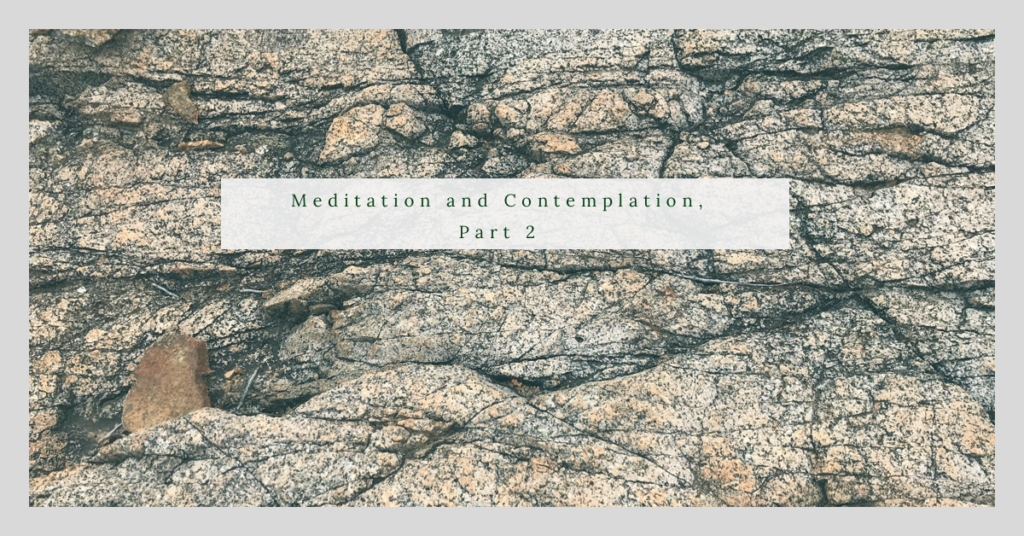
In Part 1, we talked about opening to awe and wonder, especially through nature. This leads the way to humility and reverence, pre-requisites for meditation. In this post, I’ll share more of Zajonc’s advice on being open and cultivating wakefulness from the second chapter of his book, Mediation as Contemplative Inquiry. I’ll link to posts already written about these topics.
Here are some of the ways Zajonc cultivates wakefulness.
* Strengthen attention. Have you ever tried to sustain attention on a simple object for five minutes? It’s way harder than you think because our minds are so distracting. Try it and see how often your mind wanders away. This is a powerful meditative practice.
* Cultivate equanimity. This is a way of dealing with our emotions, not by numbing them, but instead letting them flow and seeing from a higher plane. Each day is filled with joys one moment and sorrows the next. The important thing is to not let your emotions rule, otherwise you won’t see clearly. Zajonc suggests finding a right relationship with feelings. Learn from every situation.
* Be positive. In other words, love everything. Finding the good in another person or a situation is not being a Pollyanna, it’s seeing that everything and everyone is worthy. This is a good exercise for your own well-being. The way I look at it is, would I want to be judged for the rest of time by my worst action? Absolutely not. I’m more complex than that and so is everyone else. Call unjust actions for what they are but find the good too. Your life will be much more satisfying if you do.
* Sustain resolve. How many times have you tried to incorporate a habit and fallen short within a couple of days. The answer is to start small, aiming for the long commitment. This is what I’m doing with my meditation practice, starting with 10 minutes per day. Zajonc suggests practicing resolve by starting with a trivial action and doing it at the same time every day. For example, I drink a glass of water every day before drinking coffee. Another way to do it is to bring mindful attention to a normal action of everyday life. David Cain does this when he opens a door, something all of us do several times each day. These actions strengthen the muscle of resolve.
* Open to the unexpected. Like it or not, life never happens as planned. That’s because life is change, it’s always evolving. There is no greater example than the current coronavirus situation. The thing is we often respond to events in the moment based on past experiences. Yet, this moment is not the same. It requires fresh ways of seeing and responding. So openness to new ways of responding are absolutely necessary. How do we do this? By seeing our ingrained habits and biases and questioning assumptions. By asking how else we could respond or what’s needed in this moment. This current situation is ripe for this kind of practice.
Read: Grace and Four Blocks to Openness and Welcome the Unexpected.
“True openness is one of the most important intellectual and moral accomplishments to which we can aspire. It leads to an outer life of engaged interest and an inner life open to the unexpected and unfamiliar.” ~ Arthur Zajonc
Zajonc stresses that the practice of meditation and contemplation goes far beyond finding bliss, peace, or happiness. These may be occasional by-products but they’re not the main motivation. The real motivation is getting to the core of who you are (beyond ego) and why you’re here in this moment. It’s about living with compassion in a world of interdependence. And, compassionate action often comes from struggle.
There’s no better time to begin these types of exercises than now in this time of uncertainty and fear. Zajonc says that fear is a product of the mind which holds us back from being open to what is needed in the moment. He suggests being distracted by chance instead. In today’s world, that might look like seeing the need in your community and deciding how you can help.
Read: The Book of Delights by Ross Gay and my post, Invite Chance In.
** Books mentioned have Amazon affiliate links, meaning I make a few cents if you purchase through my link. I only recommend books that I’ve read.